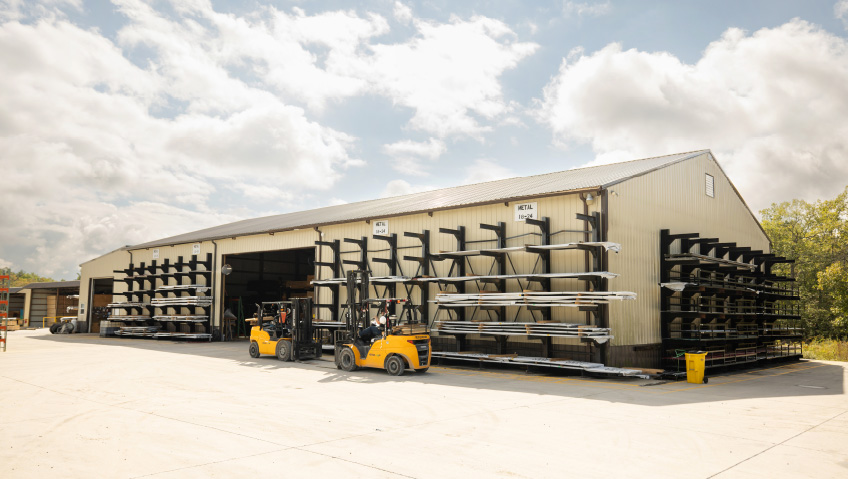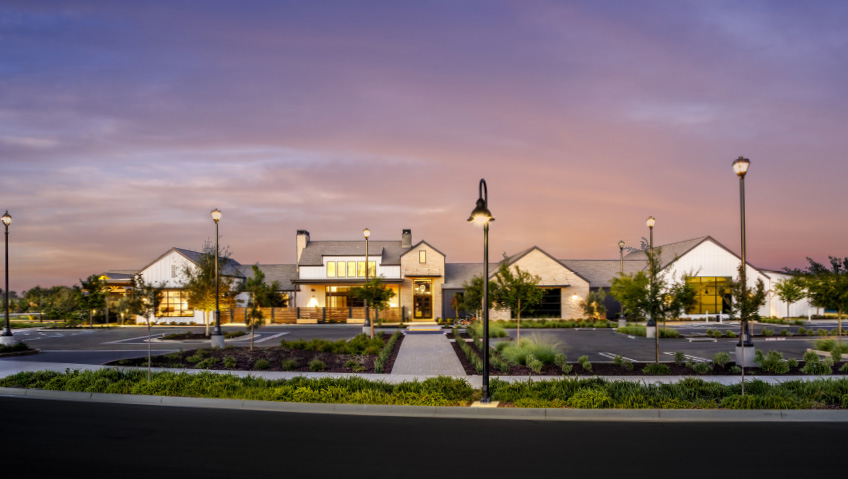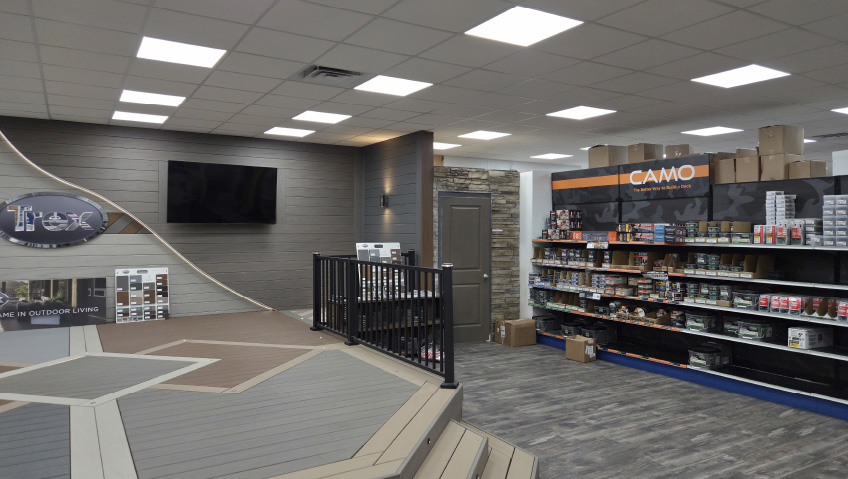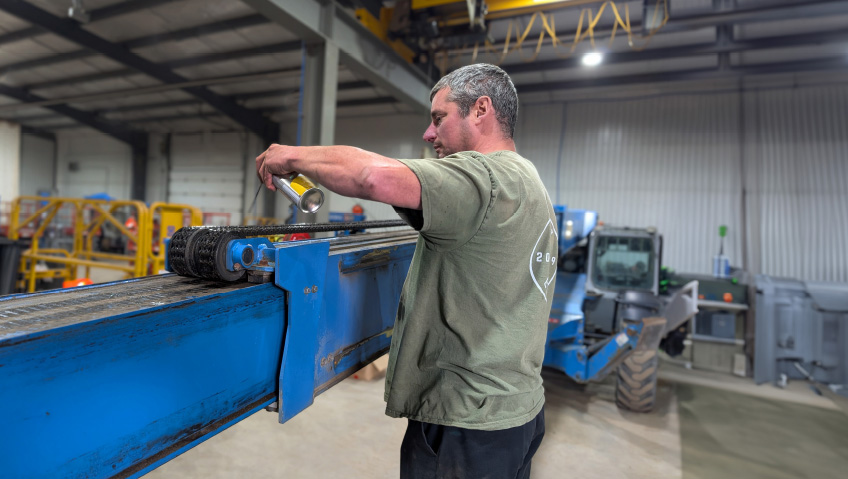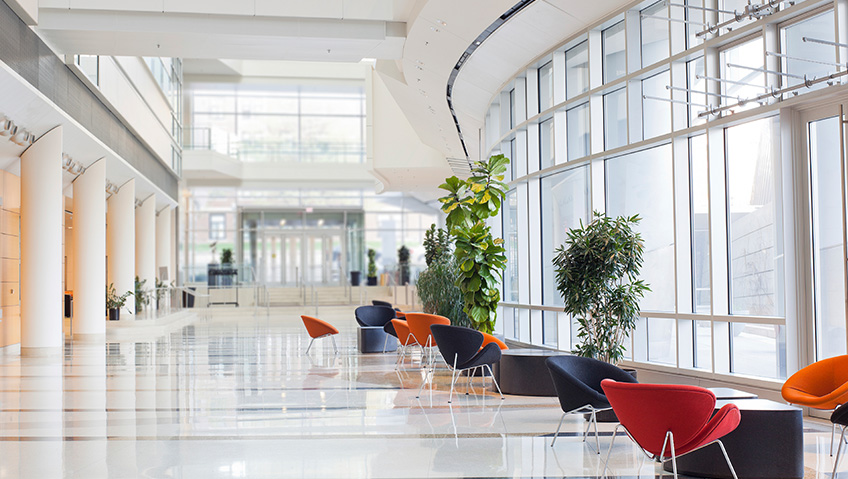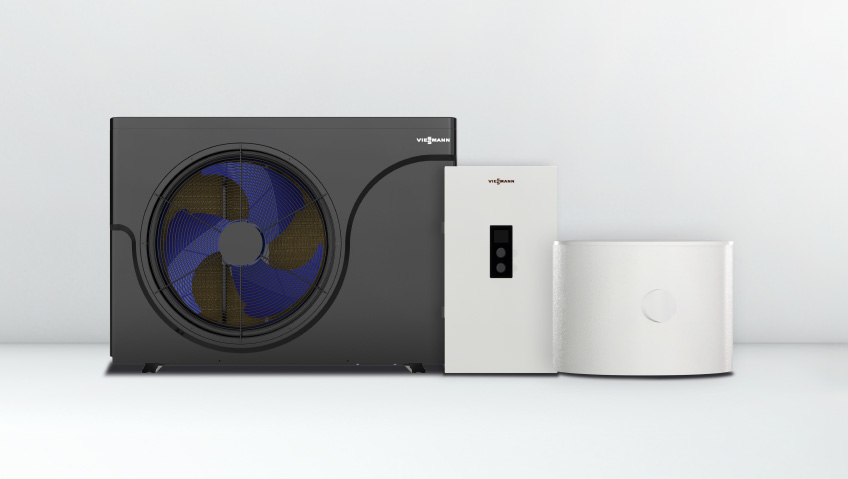Troyer Post Buildings of Monterey, Tennessee supplies unique, low-cost pole barns for the residential, commercial, and agricultural sectors. The rapidly growing, family-run firm blends an entrepreneurial spirit with old-fashioned values built around its shared Mennonite faith. The company, which just opened a new branch in Greeneville, marked its tenth anniversary last year and is highly optimistic about the future.
“Pole barns are historically agricultural buildings that farmers and people looking for big garages have used,” explains Owner and CEO, Tim Troyer.
Pole barns use posts embedded in the ground for structural support. While they lack concrete foundations or a basement, pole barns are as sturdy as their traditionally framed counterparts, if not more so, says Troyer.
The pole barn concept stems from the Great Depression, when cash-strapped farmers in economically distressed areas began using old telephone poles as structural elements in new barns. Farmers realized that poles offered a speedy, cost-effective alternative to customary building methods—factors that Troyer’s clients also appreciate. Customers who opt for pole buildings get “a lot of square footage under a roof for quite a bit cheaper than conventional framing,” he explains.
Depending on their intended end-use, pole barns can either be enclosed or built without walls. They can be insulated by applying spray foam (a tough substance that creates a tight air seal and isn’t water absorbent, thwarting mold growth), foam boards (rigid, inexpensive boards that also don’t retain water), or rolls of fiberglass.
While farmers came up with the idea, pole barns can be used for myriad purposes. In addition to storage, pole barns make for enticing residences, with roomy “open concept” interiors. So-called “barndominiums” (“barndos” for short) are becoming a popular choice for customers looking for ample, low-cost living space in a rural setting, notes Troyer.
“An ideal Troyer [barndo] customer is an older, possible retired, couple that have lived in a subdivision, perhaps in a 5,000-square-foot house for the last 20 years. Now they are retired, and want to live in a 1,200-square-foot house with 3,000 square feet of play area to do hobbies in. They want to downgrade the living area, upgrade the hobby area,” he shares.
That said, the agricultural sector continues to bring in the most revenue for the firm.
Current company offerings for agricultural clients include a pole barn equipment shed (a three-sided building with a single-sloped roof to protect equipment from the elements) and pole barn lean-to sheds (buildings with wood rafters or steel, in the case of larger structures, again to protect equipment). Offerings for the commercial sector include pole barn storage units, warehouses, and riding arenas (the latter are constructed with engineered steel trusses and 8 x 8 posts—upgradeable to 10 x 10 posts if need be). For the residential sector, Troyer Post Buildings sells pole barn garages and workshops. The firm’s pole barn garage utilizes overhangs and steel trusses and is one of its most sought-after enclosed buildings. Barndominium offerings include a range of enclosed models of varying sizes, designs, and prices, bearing names such as the Birmingham, the Milwaukee, and the Baton Rouge.
Troyer Post Buildings’ main facility in Monterey features a lumberyard (with wood poles, generally made from Southern Yellow Pine, on offer) and a sales office. Typically, customers bring their ideas and wish lists to staff members who help them formulate a design. Once a design has been confirmed, the team puts together a materials package that consists of the necessary poles and other building components.
Material packages are loaded onto trucks and then are delivered to the customer’s site. If the customer doesn’t wish to erect or add turnkey items to the pole barn themselves, the firm can provide a list of recommended contractors who can perform such duties. At this point, a contractor and crew are scheduled to come out to the job site and build the pole barn. Troyer refers to material packages as kits and calls the contractors who put them together “kit assemblers.”
For its part, the newly added Greeneville office is dedicated to sales.
The company’s heritage is closely entwined with Troyer’s own faith. The Troyer family are Mennonites, descendants of a religious group from central Europe that emphasized simplicity, hard work, family, and Christian devotion over flash, ease, and secularism. Troyer can trace his lineage back generations, and his faith has influenced the company from the start. Indeed, he and his brothers (he has four younger brothers and one sister) have been working from early adolescence on.
When Troyer was 13 years old, his father opened up a workshop to build portable storage buildings. His father taught his boys construction basics and they began putting in shifts at this family vocation. The Troyer boys appreciated their tutelage but eventually decided to branch out. “As we reached our twenties, we kind of wanted to start our own thing,” recalls Troyer.
With their father’s backing and advice, the brothers established Troyer Post Buildings in 2014 and set about building pole barns. “After a couple years of building, we said, ‘Hey. We need to get into the lumberyard business,’” Troyer recalls.
The business pivoted and a lumberyard was established. The company began buying wholesale supplies and putting together their own building packages. Tim Troyer handled sales while his brothers took care of other aspects of the fledgling firm.
“I was young, unmarried, and easily put in 100 hours a week. I was on the phone all the time with customers, texting late into night, doing pricing, getting people buildings,” says Troyer of the company’s early days.
This dedication was matched by shrewd family financial planning; from the start, the business has been largely debt-free. The prevailing idea has been to spend money wisely and not risk the company’s future on speculative gambles or wanton expansion. This approach to finances also stems from the family’s faith, which puts people ahead of profits.
At first, the business largely served the agricultural community and focused on farmers who wanted inexpensive structures to protect hay and equipment. Sensing opportunities, the Troyer brothers expanded into the commercial and residential markets.
Now in its second decade of operation, Troyer Post Buildings remains family-owned and managed. Asked if there is a secret to the company’s success beyond hard work and excellent customer service, Troyer cites his “amazing wife” (he is now married, with three children) and “having a good family and church structure—having a good community around you.”
The firm today primarily serves customers in Tennessee and Kentucky, although it has worked in Virginia, North and South Carolina, and Georgia as well. The company offers clients a service called 3D Designer, which lets users take their ideas and “create an actual model” of the structure they want, states Troyer. And the company is currently in a growth spurt, having grown from roughly 25 employees in 2023 to close to 40 in 2024.
When it comes to new hires, “We are a very core values-focused company,” states Troyer. Job applicants would be wise to focus on these values, which include consistency, humility, helpfulness, trustworthiness, and innovation. Employees enjoy some unique perks, including paid sabbaticals. A standard feature in academia, where professors are given a lengthy break every few years to concentrate on research and writing, sabbaticals at Troyer Post Buildings are intended to give staff extra family time.
“Coming from my background, family is everything… a sabbatical is [a highlight] in a child’s life: ‘I’ve got a whole month or two months with dad at home!’” shares Troyer.
In a similar fashion, the company makes it its mission to ensure a safe workplace for its employees. The HR manager is certified in various workplace safety courses, and training is provided for specialty tasks such as using a forklift. Workers are equipped with all appropriate PPE and the firm closely follows OSHA (Occupational Safety and Health Administration) regulations.
Troyer Post Buildings purchases its supplies “straight from sawmills” and aims to forge “good relationships with our vendors,” says Troyer. “We try to be great buyers—we pay our bills early and are consistent and honest in what we do, so they want to keep selling to us at good prices. If we can be a great customer, we can lower their risk, and they can give us a better price.”
Of course, like any business, Troyer Post Buildings has faced its share of trials and tribulations. “I think our biggest challenge in 2025 is going to be rising material costs,” he says. “We expect the market is going to heat up and the cost of lumber is going to increase pretty dramatically in 2025.”
To soften the impact of such price hikes, the company will continue to focus on efficiency and maintaining robust vendor relations, he adds.
Going forward, Troyer says the barndominium market is “where we see the most growth in the future.” While eager to expand, he prefers to emphasize the firm’s other qualities, rather than just the bottom line. “Five years from now, we hope to continue growing while still caring for people… and continue recognizing that our people are our most valuable asset.”
Visit troyerpostbuildings.com to learn more.

